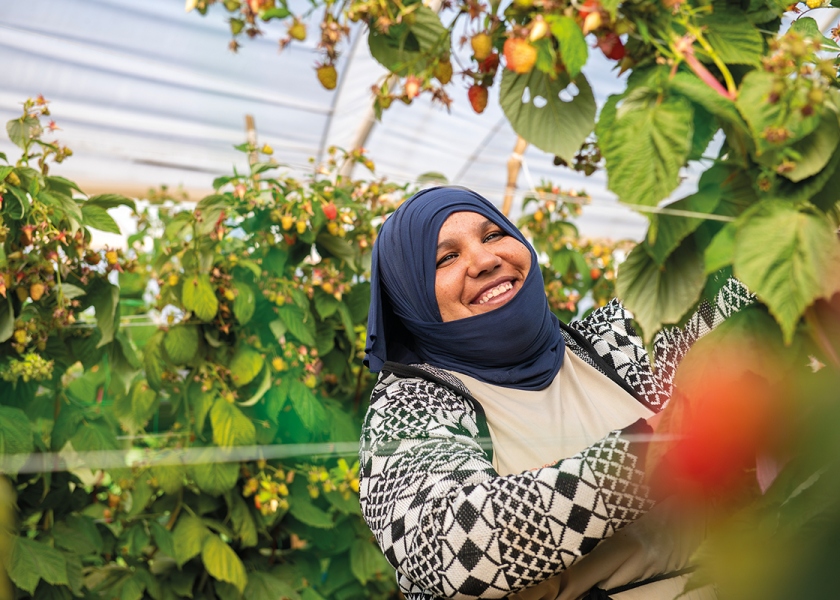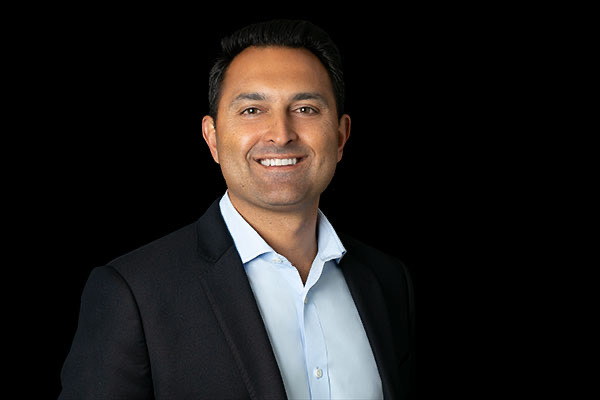Agrovision sets sights on sustainability, empowering communities

Agrovision, a Los Angeles-based producer and year-round supplier of blueberries, raspberries, blackberries and cherries, is on a journey — one that co-founder, CEO and Executive Chairman Steve Magami says seamlessly intertwines sustainable agribusiness with ecological preservation, societal empowerment and global health improvement.
Earlier this month, The Packer interviewed the Agrovision exec via email about the vertically integrated company’s recent 10-year anniversary; its growing operations and commercial partnerships in Peru, the U.S., Mexico, Morocco, China, India and Romania; goals for the year ahead; and a business model it says is aligned with the Sustainable Development Goals of the United Nations.
The Packer: Congratulations on Agrovision’s 10-year anniversary. What’s on the horizon in the year ahead? Is there a particular goal you hope to achieve?

Magami: Agrovision has come a long way since establishing our first blueberry plantings in Peru. In just a decade, our company has undergone sustained growth and success and today, we are a leading global producer and supplier of premium superfruits specializing in berries.
As we look forward to the next decade, we see a wave of opportunity for retailers as consumers increasingly embrace a long-term approach to wellness and seek out foods and snacks that not only taste good, but also offer positive health benefits.
Consumers are becoming more aware of the many positive health benefits of superfruits such as blueberries, which offer valuable antioxidants, fiber and vitamins. We know too that consumers are willing to spend more on premium healthy snack options and that convenience, portability and value are attractive offerings for today’s on-the-go lifestyle.
Our major goal for 2024 is to educate consumers that a better berry exists and that it can be reliably found year-round. [We also want] to get retailers on-board with this growing demand, which we see as a sizeable untapped opportunity.
The Packer spoke with Agrovision Chief Commercial Officer Steve McVickers at the recent Fruit Logistica in Berlin, where he shared some of Agrovision’s sustainable farming initiatives in Peru, including redirecting the Amazon to transform barren desert into a farming oasis. What are some of Agrovision’s achievements related to sustainable farming and building sustainable communities of which you are most proud?
From Day 1, Agrovision has remained fully committed to developing a modern agribusiness, coupled with a commitment to lift up the communities in which we operate — Peru, Mexico and Morocco — by bringing economic stability and advocating for social responsibility, including care for the environment and women’s rights, along the way.
How is Agrovision seeking to reduce the social inequities within the communities it farms?
Many of our Peruvian workforce — up to 15,000 field workers during peak harvest — come from remote impoverished areas throughout the country. Agrovision provides these workers ample opportunities for stable employment — not only working in the fields and running machinery, but also in the service sector, [including] transportation, retail, medical services, technical, IT, engineering and more.
Agriculture in South America is creating an economy that would not otherwise exist. Our team in Peru earns an attractive monthly wage that is improving the quality of lives and building communities.
Further, more than half of the Peruvian workforce are women. Employment provides financial independence, promotes social stability and builds self-esteem. For many of the women, it is the first time they have opened a bank account — a huge source of pride for many.
Agrovision [also] sponsors football leagues; provides school supplies, medical equipment and water to communities; helps families with abused, battered women and much more.
How do Agrovision’s sustainability efforts align with the United Nations’ Sustainable Development Goals?
The company is proud to be aligned with 11 of the 17 United Nations’ Sustainable Development Goals and to have earned the most prestigious certifications. It's a testament to how a company's growth can be intertwined with creating a better world for future generations.
Agrovision has a robust genetics program. Beyond climate change, what are the key drivers of the program and how does it relate to improved fruit quality and a sustainable food supply?
Genetics are foundational and we continually seek out the newest berry varietals that set new standards for quality across flavor, size, texture and freshness.
We are proud to work with some of the world’s finest breeding programs, merging precision farming technologies and craftsmanship to yield a better berry with higher quality, superior taste, crunch and size, for a premium eating experience.
Our newest European offering — the Pink Star raspberry — is the result of more than 100 years of breeding experience. It’s receiving an overwhelmingly positive response from our retail customers.
Grown in Morocco on our own farms, the Pink Star raspberry offers flexibility in production, consistent supply, superior size and an exceptional taste, paired with long shelf life.
Better genetics also means better for the environment. We invest in sustainable agriculture in the farming communities in which we operate. We operate with transparency, honesty and fairness, and shared passion and purpose across our teams.
How important is local when you’re a global company?
Locally grown is a key component of a sustainable food supply. We’ve just announced our plans to introduce large-scale farming operations in the Yunnan province of China. The new operations, which will total 2,000 hectares, serves to advance our company’s promise of premium, locally grown, superfruits to health-conscious Chinese consumers.
The Packer had the opportunity to sample the jumbo Sekoya blueberries at Fruit Logistica. What does Agrovision’s “better berry” program mean to you and how does this philosophy influence the company’s product development and overall berry business?
We are focused on cultivating superfruits of the highest quality and setting new standards for flavor, size, texture and freshness — a better berry. And in order to deliver on this promise, we leverage advanced agricultural technology and identify specific global microclimates and unique terroirs that align well with new genetics. We aim to deliver to consumers a consistently enhanced experience, superior in quality, taste, size and shelf life. And for retailers, we offer a higher level of both quality and product supply certainty.
I understand that Agrovision is also growing in Oregon. How do your U.S. operations complement your farming in Mexico, Morocco and Peru?
Agrovision’s global farming operations in the U.S., Peru, Mexico and Morocco strategically establish immediate access to major consumer markets worldwide.
Its global farming footprint, with complementary harvest seasons, support year-round supply while advanced agricultural technology brings to market new premium berry varietals that offer a reliably higher quality.
Oregon will be a key component in the 52-weeks a year calendar of better berries and will offer North American consumers new varietals, year-round.







